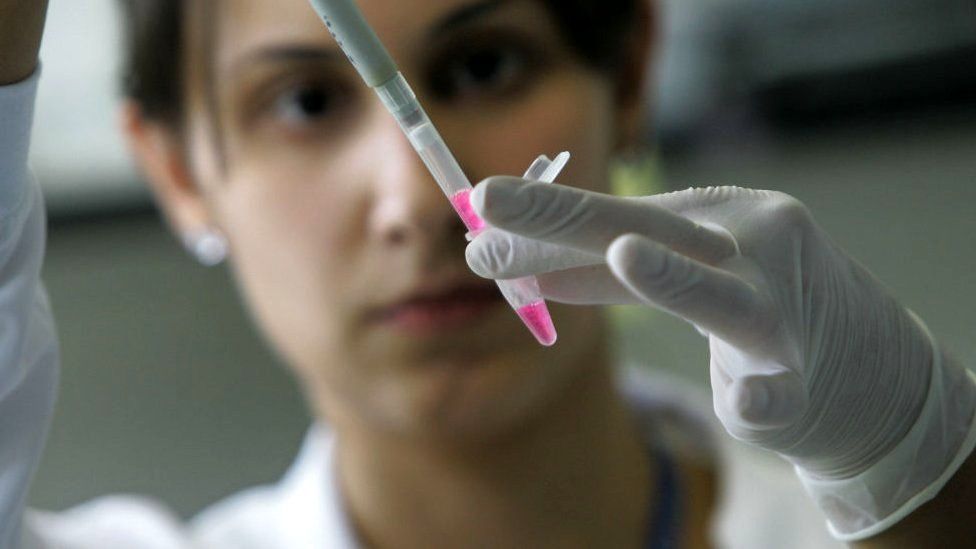Gender equality: 'No room at the top for women scientists'
- Published

The number of women climbing the career ladder in science is "disappointingly low", say researchers.
Women make up half of students in the life sciences, but only one in four professors, according to data from 500 scientific institutions worldwide.
The main problem lies with retaining and promoting women into influential positions, the study concluded.
It found women had fewer chances to serve on committees or speak at scientific meetings.
Other factors included unconscious bias, tensions with work-life balance, poor funding and pay, and a lack of networking opportunities.
What did the study show?
The data, published in the journal Cell Stem Cell, came from 541 universities and research institutions in 38 countries in the US, Europe and Australia.
Women made up more than half of undergraduate and postgraduate students, 42% of assistant professors and 23% of full professors, although rates varied by institution.
What are the lessons learned?
The findings back the view of many women in science that more must be done to address the problem of the "leaky pipeline" - where women leave the profession due to problems such as harassment and issues around promotion and pay.
"There is no point in encouraging more girls into science if the system is set up to exclude them," Dr Jessica Wade of Imperial College London, who champions women in physics but was not connected with this particular study, told the BBC.
"Improving gender balance in science will take institutional commitments to support women in their applications for promotion, act when there are reports of sexual harassment or bullying and make work allocation more transparent."
The Royal Society of Chemistry said its own report, Breaking the barriers, which looked at the picture in the UK, showed a similar picture - 44% of chemists at undergraduate level are women - but only 9% of professors are.
"More worryingly, a staggering 99% of women told us they had experienced or witnessed barriers to women's progression and retention," said Dr Jo Reynolds, director of science & communities.
To address the issue, they plan to launch a helpline and are researching whether gender bias exists within scientific publishing - the mainstay of a research career.
Women have made important contributions to science throughout history, but have consistently been underrepresented at all levels.
One recent study found that closing the gender gap in physics will take hundreds of years, given the current rate of progress.
Follow Helen on Twitter.